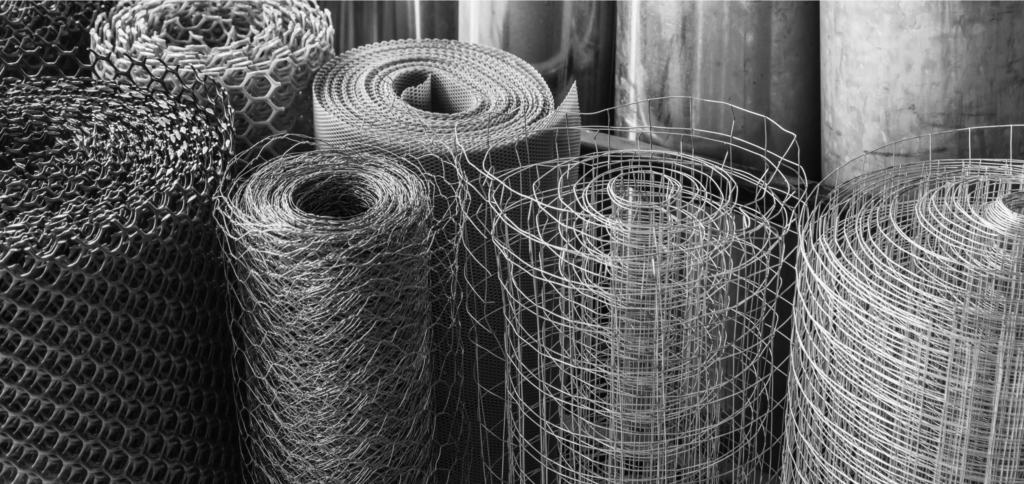Wire meshes, the unsung heroes of countless applications, owe their versatility and strength to the materials that form their foundation. The material choice not only defines their durability but also governs their resistance to corrosion, tensile strength, and suitability for specific tasks. In this comprehensive article, we delve into the core materials used to craft wire meshes, exploring their unique characteristics and the wide spectrum of applications they empower.
- Stainless Steel: A Paragon of Durability and Corrosion Resistance: Stainless steel, with its unparalleled strength and resistance to corrosion, emerges as a dominant force in wire mesh production. This material comes in various grades, each tailored to specific requirements. From the food industry’s strict hygiene standards to rugged industrial settings, stainless steel wire meshes stand as a reliable choice for filtration, reinforcement, and security applications.
- Galvanized Steel: The Armor Against Corrosion: Galvanized steel, a standard in wire mesh manufacturing, is fortified through a zinc-coating process that combats corrosion. Ideal for outdoor environments, galvanized steel meshes provide a cost-effective solution for fencing, agricultural enclosures, and industrial partitions. Their ability to withstand the elements while retaining affordability makes them a staple in various projects.
- Aluminum: Balancing Strength and Lightweight Properties: Aluminum wire meshes effortlessly balance strength and lightness, making them ideal for scenarios where weight is a factor. Their natural oxide layer grants them resistance to corrosion, ensuring durability even in challenging conditions. Industries such as aerospace and automotive manufacturing rely on aluminum wire meshes for their intricate designs, efficient airflow, and reduced weight.
- Copper: The Fusion of Beauty and Functionality: Copper wire meshes redefine aesthetics with their distinct reddish-brown hue, evolving over time into a unique patina. Beyond aesthetics, copper boasts antimicrobial properties, making it a prime candidate for applications in healthcare settings, food processing, and decorative installations. The combination of functionality and beauty positions copper wire meshes at the intersection of form and purpose.
- Brass: Melding Elegance and Robustness: Brass wire meshes exemplify elegance and resilience, earning them a place in both functional and decorative applications. The material’s corrosion resistance, combined with its malleability, allows for intricate designs in architectural facades, artistic creations, and ornamental structures. Brass meshes blend strength with sophistication, transforming spaces into works of art.
- High Carbon Steel: Precision and Strength Unleashed: High carbon steel wire meshes excel in applications that demand precision and strength. Their tightly woven patterns make them suitable for tasks such as particle separation, sieving, and scientific research. In industries where accuracy is paramount, high carbon steel wire meshes deliver uncompromising results, ensuring longevity and reliability.
Wire meshes’ remarkable adaptability and functionality stem from the array of materials they can be crafted from. The material choice shapes not only their physical attributes but also their performance across diverse sectors. As you embark on projects ranging from structural reinforcement to architectural embellishment, remember the pivotal role that material selection plays in achieving your desired outcomes. At Himalaya Global Trading, we offer an extensive assortment of wire meshes meticulously fashioned from premium materials, catering to your specific needs and ensuring optimal performance across the spectrum of applications.
